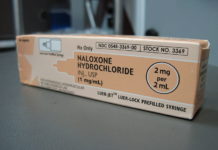Health care professionals who work in emergency departments prescribe less opioid-based medications than other physicians, a new study revealed.
The study, published in Annals of Emergency Medicine, also found that patients who obtain prescriptions for opioids in emergency room settings are less likely to use them for extended periods of time than those who are prescribed in other clinical settings.
Researchers from the American College of Emergency Physicians analyzed data gathered from 2009 to 2015 regarding medical claims of opioid-naive patients who had private insurance coverage as well as Medicare throughout the county.
More than 5 million opioid prescriptions were then selected to be included in the study, and the team found that the prescriptions originated at emergency departments were more likely to comply with guidelines and recommendations provided by the Centers for Disease Control and Prevention.
Across the board, disabled patients who were receiving Medicare coverage were found to have the highest chances of opioid use for extended periods — with over 13 percent of their prescription fills resulting in long-term use.
Yet, those patients were found to be 58 percent less prone to use opioids for prolonged periods if their prescriptions came from an emergency room.
While all Medicare recipients were associated with increased chances of engaging in the long-term use of opioids, those over the age of 65 were approximately 60 percent less likely to do so if prescribed by emergency physicians.
The researchers also highlighted that prescriptions for opioids from emergency departments generally allowed patients to get more limited supplies of pills, less long-acting formulations, and lower… (continue reading)

















